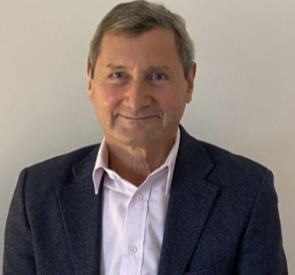IEEE ITALY PES CHAPTER DISTINGUISHED LECTURE PROGRAM: Demand Side Management and Flexibility in Tomorrow's Power Systems
Demand Side Management and Flexibility in Tomorrow's Power Systems
Context
Guarantee a constant balance between generation and load is the cardinal rule for power systems. Though in the initial years of this industry, generation was the main contributor to this balance, adapting the load and Demand Side Management (DSM) have been present for decades. For instance, through variable tariffs, since the 1970’s, domestic customers were encouraged to switch on their water heating at night. The general scene of power systems over the past years has strongly evolved due to two main major reasons: the increasing share of renewable intermittent energy sources, and the increasing share of electricity in the energy mix, with dynamic load and progress in automation and control but also with the arrival of new stakeholders and market rules. Power grid operators continue being neutral to all players whilst always guaranteeing system reliability. This historic role has faced new challenges and with more to come.
Main challenges
With the strong increase of electricity generation from intermittent energy sources, what has been marginal becomes central to system operators. Famous examples include on how generation may peak when consumption is down: wind generation at night (and negative energy prices), or solar at noon (and the famous “duck curve”). Combined with large intermittent generation, the development of Distributed Energy Resources (DER) at distribution level is growing, and the case of roof-top photo-voltaic (PV). For system operators which traditionally not only kept track but could control what generation was connected to the grid, the great unknown of what is “beyond the meter” is part of the great disruptors.
A variety of global solutions
The necessity of increased demand side management (DSM) and flexibility is widely shared amongst power grid operators and electricity stakeholders in general. The existence of international organizations such as GO15, which gathers some of the world's largest power grid operators, enables to share experience in see which solutions are specific and which could be adopted or adapted to other systems. This presentation will illustrate some examples of flexibility implemented or being investigated amongst some of these global players, with focus on Belgium (Elia), France (RTE) and South Korea (KPX).
Perspectives
Battery storage is growing fast in some systems, like California. The speed of new technology and possible drop in prices could turn them more competitive and present. Likewise, the strong push in electric vehicles (EV) is opening a large window of opportunity and changes. The potential stress for the system to charge EVs at specific moments -but who can forecast how the customers will behave depending on electricity tariffs? – will be combined with the prospect of Vehicle-to-Grid (V2G) to increase system reliability and resilience.
Date and Time
Location
Hosts
Registration
-
 Add Event to Calendar
Add Event to Calendar
Loading virtual attendance info...
Speakers
 Dr Bruno Meyer
Dr Bruno Meyer
Biography:
Bruno Meyer has over 38 years’ experience in industry in the field of energy.
He joined EDF (Electricité de France) in 1985 where he held several senior management positions during his career. Amongst others, he was director of R&D Department on Power Systems and Electrical Equipment, and VP for R&D Transmission & Distribution for EDF.
In 2009 he joined at Transmission Operator, RTE, as Senior Executive.
From 2011 to 2016 he was CEO of ARTERIA, RTE subsidiary in the field of telecommunications.
Recognized as an international expert, his fields of expertise include power systems dynamics, power system planning, electrical equipment and energy economics and regulation.
He has published over 60 papers or conference papers in the field of energy, including a book on Power Systems simulation.
Meyer has a Ph.D, from Edinburgh University, an M.Sc. from Sao Paulo University and a B.Sc. from Unicamp (Brazi).
He was elevated to the grade of IEEE Fellow in 2008.
He was 2022 IEEE Vice President Technical Activities (TAB) and has been of member of the Board of Directors of IEEE for 3 years. At IEEE he launched a program on Climate Change.
Since 2021, Bruno Meyer is Secretary General of GO15, a global association of Very Large Power Grid Operators (www.go15.org).
He is president of consulting firm ConsultBKM (www.consultbkm.fr)
Agenda
Agenda
- 10:00 IEEE PES Italy Chapter Award 2023 ceremony (IEEE PES Italy Outstanding Engineer Award 2023, IEEE PES Italy Outstanding Chapter Volunteer Award 2023, and the IEEE PES Italy Chapter Outstanding Engineer Award 2023).
- 10:15 Distinguished Lecture by Dr. B. Meyer
Media
| IEEE-PES-DL-4Dec2023-BMeyer | 237.13 KiB |

